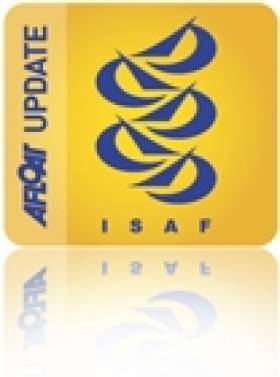Displaying items by tag: Blanca Manchon
ISAF Announce Slingsby and Manchon as World Sailors of 2010
Blanca Manchon (ESP) and Tom Slingsby (AUS).
Blanca Manchon was nominated for the third time this year and had her family and friends with her at the Awards ceremony here in Athens. "This is really fantastic," said a radiant Manchon on stage as she accepted her trophy and her Rolex timepiece. "As this is my third nomination for the ISAF Rolex World Sailor of the Year Award we were all hoping this would be it... and here I am! I cannot believe it. I worked very hard to get here but I'm young - only 23 years old - so I hope I continue to do many things and maybe I will see you again here someday."
Tom Slingsby could not make it to Athens for the ceremony due to electrical storms over Sydney that grounded international flights. Slingsby was surprised when his phone call to "discuss laser sailing", turned into a live announcement from HRH Prince Frederik of Denmark, announcing that he had won the 2010 ISAF Rolex World Sailor of the Year Award. "Wow, thank you!" said Slingsby. "I just remember sitting on the rocks in Sydney harbour watching the Olympics. I remember seeing people like Ben Ainslie and Robert Scheidt, two former winners of the ISAF Rolex World Sailor of the Year Awards, and thinking, "I want that, that's really what I want to do." To be considered among them today is really an incredibly big honour."
The ISAF Rolex World Sailor of the Year Award is the highest award a sailor can receive in recognition of his/her outstanding achievements. The Awards are presented annually based on a worldwide selection process that incorporates an open invitation to nominations, followed by a vote amongst the 130 member nations of the International Sailing Federation (ISAF).
The Awards have been held every year since 1994 and past winners include Peter Blake (NZL), Ellen MacArthur (GBR), Robert Scheidt (BRA) and Russell Coutts (SUI). In 2009 the Awards were presented to Torben Grael (BRA) and Anna Tunnicliffe (USA).
www.sailing.org/worldsailor






























































